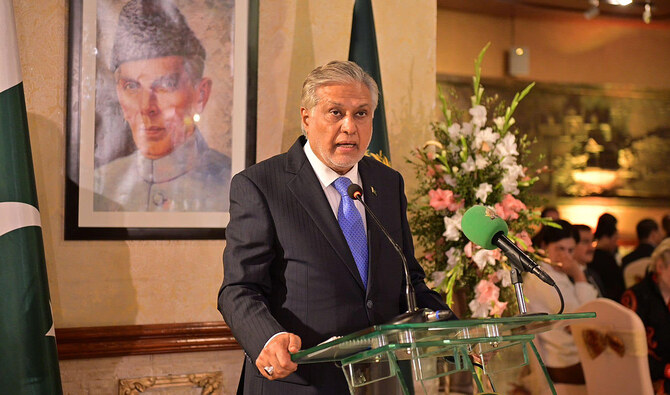Civil-Military Relations
Deputy Prime Minister and Foreign Minister Ishaq Dar emphasized the urgent need to strengthen ties between Pakistan’s civil and military leaderships to ensure national stability amid the country’s current challenges.
In an interview on Monday, Dar remarked, “The country’s situation demands better civil-military ties,” stressing that collaboration between both spheres is essential to navigate through the nation’s turbulent political landscape.
Dar also addressed the contentious issue of proposed constitutional amendments, which have sparked debate among political actors. He pointed out that the agenda for constitutional reforms is not new, as the Charter of Democracy (CoD) was signed back in 2006.
According to Dar, the CoD already contained provisions for judicial reforms, which have now become a significant point of contention. He highlighted that even major political figures, such as Pakistan Tehreek-e-Insaf (PTI) founder Imran Khan and Jamiat Ulema-e-Islam Fazl’s (JUI-F) Maulana Fazlur Rehman, were signatories to the Charter at the time, agreeing to its terms.
Touching upon the government’s efforts to engage political stakeholders, Dar revealed that the Centre had paused consultations on the constitutional reforms package after considering the stance of Maulana Fazlur Rehman.
The ruling coalition attempted to gain the support of Rehman, holding several meetings with him in an effort to smooth over differences, but these attempts were unsuccessful.
Despite claims of having the “magic number” to pass the amendments, the government has struggled to table the judiciary-centric reforms, particularly those related to the creation of a separate constitutional court.
Dar expressed uncertainty about Senator Irfan Siddiqui’s announcement of a “final date” for introducing the constitutional changes, stating that he was unaware of such a declaration.
Speculation continues to grow regarding the proposed amendments, especially as they come at a critical time with Chief Justice of Pakistan (CJP) Qazi Faez Isa set to retire in October this year.
PTI recently requested that a notification be issued for the appointment of the next CJP, raising concerns about the government’s motives regarding the tenure of the current chief justice.
Despite their efforts, the government remains short of the votes required to pass the amendments in parliament—needing 13 more votes in the National Assembly and nine in the Senate.
The proposed changes have sparked a flurry of activity within the ruling coalition, particularly between the Pakistan Muslim League-Nawaz (PML-N) and the Pakistan Peoples Party (PPP), who have sought to garner support from political allies. However, Fazlur Rehman’s continued opposition to the amendments has been a significant hurdle.
Dar also touched on the government’s stance regarding the PTI. He noted that while the government could have engaged in negotiations with the Imran Khan-led party, the events of the May 9 riots have made it difficult to proceed. The violence and unrest that occurred have created a rift, leaving the ruling coalition hesitant to engage with PTI in formal talks.
Regarding Article 63(A), Dar suggested that it should be “fixed” if it was deemed wrong. The article has been a focal point of legal debates, particularly concerning the disqualification of lawmakers for defecting from their party.
Concluding his remarks, Dar reiterated that no major decision within the PML-N is made without the approval of the party’s president, Nawaz Sharif. “Even Prime Minister Shehbaz Sharif follows the directives of Nawaz,” he stated, emphasizing the influence and authority that Nawaz Sharif continues to wield within the party despite his absence from the political scene in Pakistan.
I am a dynamic professional, specializing in Peace and Conflict Studies, Conflict Management and Resolution, and International Relations. My expertise is particularly focused on South Asian Conflicts and the intricacies of the Indian Ocean and Asia Pacific Politics. With my skills as a Content Writer, I serve as a bridge between academia and the public, translating complex global issues into accessible narratives. My passion for fostering understanding and cooperation on the national and international stage drives me to make meaningful contributions to peace and global discourse.










